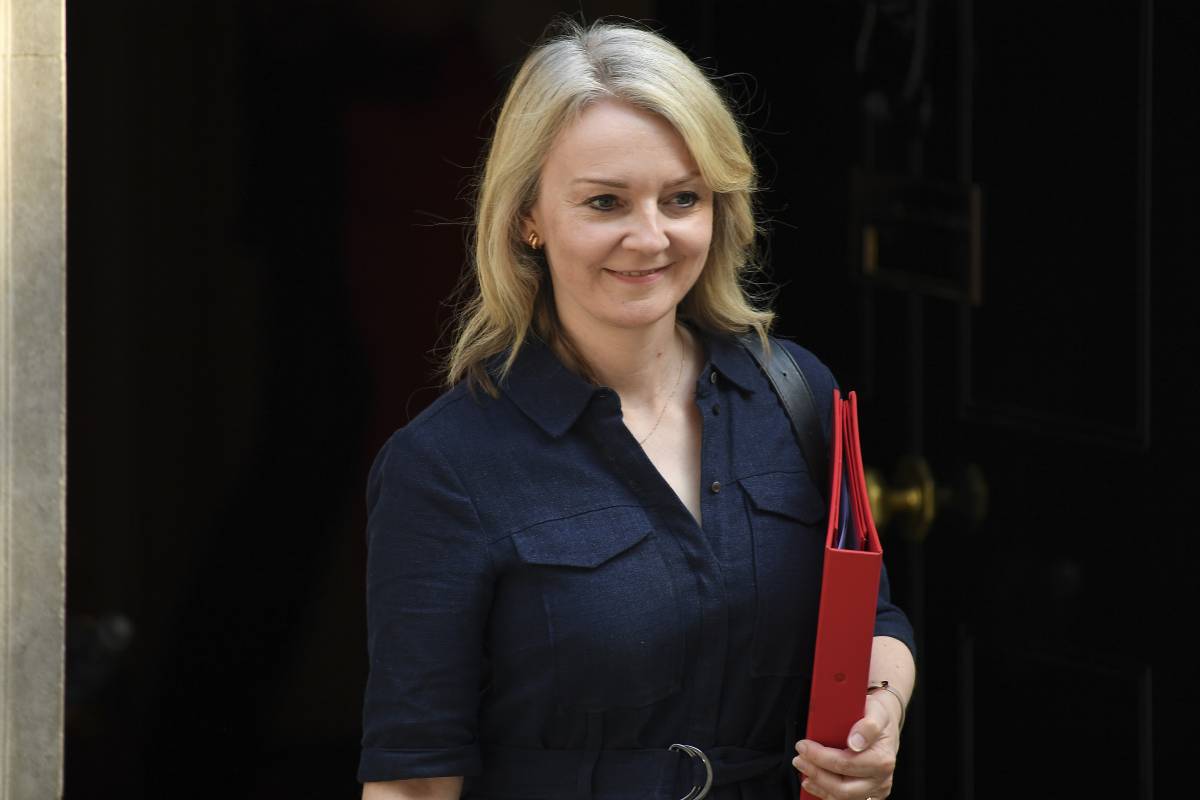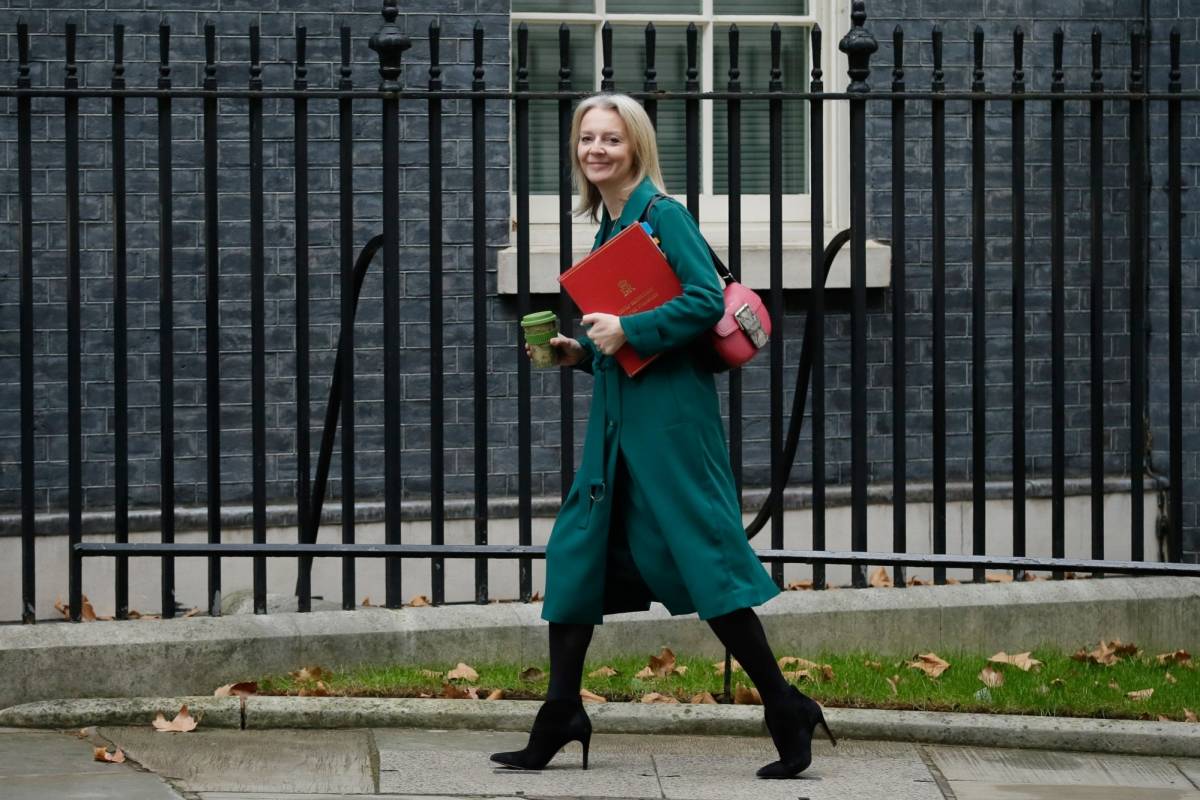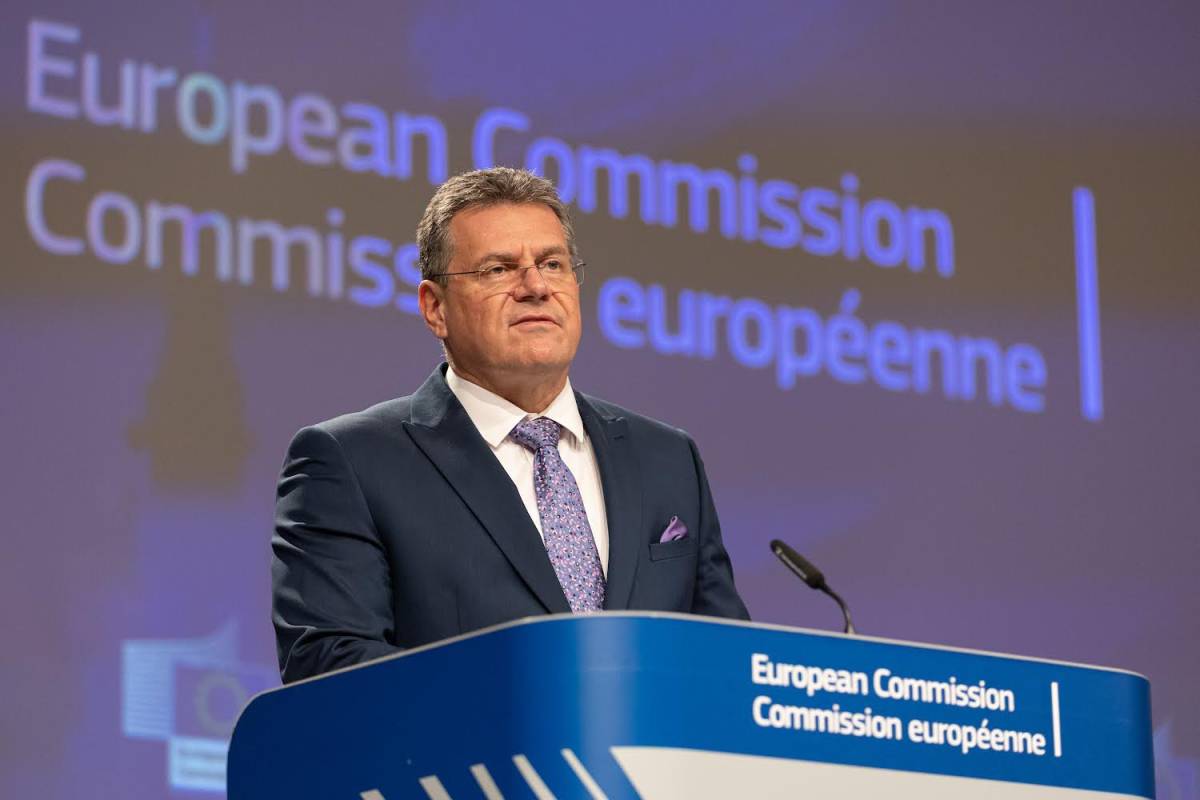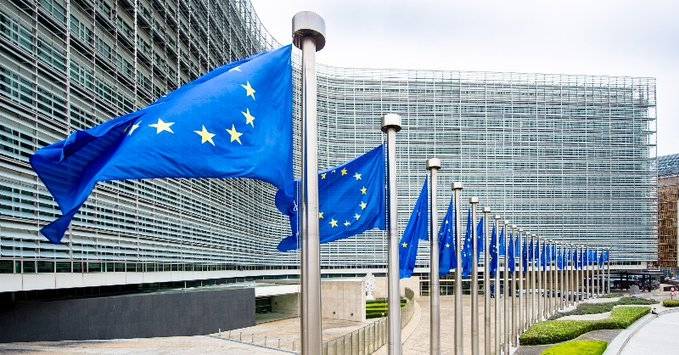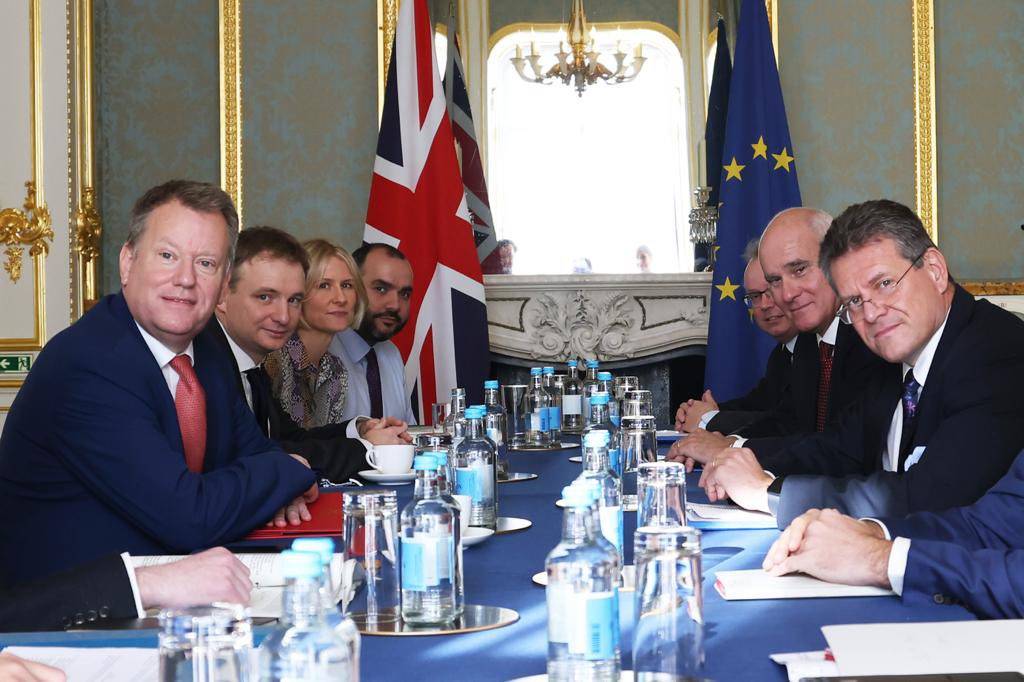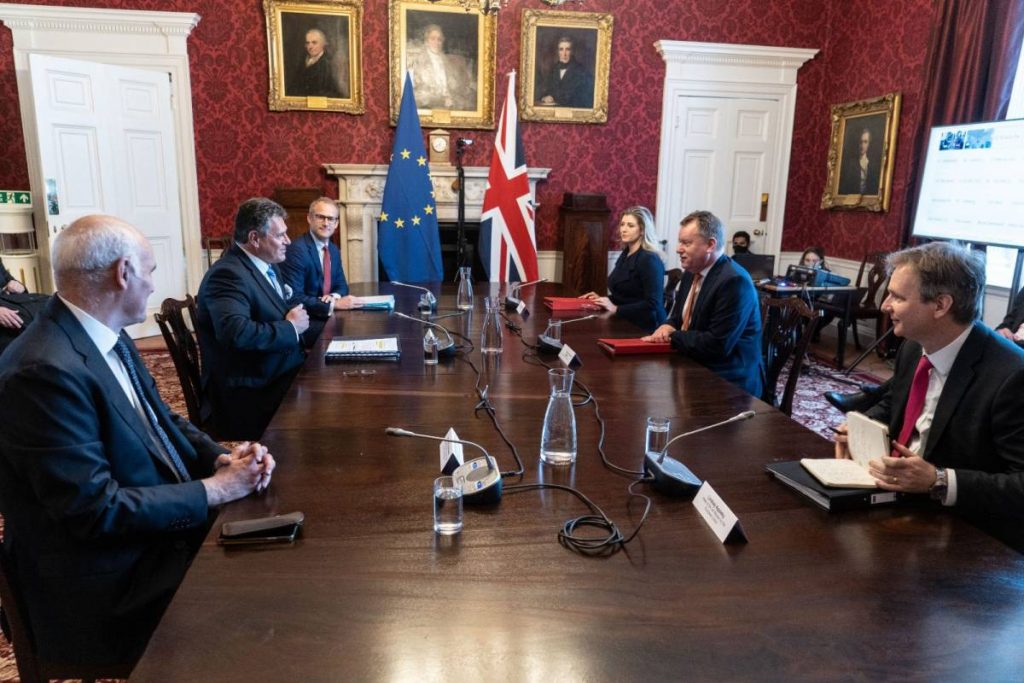The Times newspaper reported that Prime Minister Boris Johnson’s government could legislate to ditch checks on goods and tell businesses in Northern Ireland to disregard EU rules…reports Asian Lite News
Britain has rejected the European Union’s proposals to resolve a standoff over post-Brexit trade rules for Northern Ireland, saying it would not shy away from taking direct action in the latest escalation between the two sides.
Striking a deal that preserved peace in Northern Ireland and protected the EU’s single market without imposing a hard land border between the British province and EU member state Ireland, or a border within the UK, was always the biggest challenge for London as it embarked on its exit from the bloc.
It agreed on a protocol which instead created a customs border in the sea between Northern Ireland and the rest of the UK, but now says the required bureaucracy is intolerable.
London’s Conservative government has been threatening to rip up the protocol for months, raising the risk of a trade war with Europe at a time of soaring inflation and ringing alarm bells across Europe and in Washington.
Brussels offered to ease customs checks in October last year, but British Foreign Secretary Liz Truss on Wednesday said this failed to address the core problem, “and in some cases would take us backward”.
“Prices have risen, trade is being badly disrupted, and the people of Northern Ireland are subject to different laws and taxes than those over the Irish Sea, which has left them without a (governing) executive and poses a threat to peace and stability,” she said in a statement.
Truss said the government wanted a negotiated solution, but added we “will not shy away from taking action to stabilise the situation in Northern Ireland if solutions cannot be found”.
The Times newspaper reported that Prime Minister Boris Johnson’s government could legislate to ditch checks on goods and tell businesses in Northern Ireland to disregard EU rules.
The move to announce domestic legislation which would effectively disapply the protocol could come on Tuesday, a Conservative source said.
But not everyone in British governing circles will back such an approach, which could also take months to be passed by the lower and upper houses of parliament.
Simon Hoare, a Conservative lawmaker who chairs parliament’s Northern Ireland select committee, said, “No honourable country should act unilaterally within an agreement.”
Were the House of Lords to object to the legislation, the government could try to resort to the Parliament Acts, a rarely used device that solves disagreement between the lower and upper houses, to force it through.
Ireland, Germany and the EU leadership have urged the UK not to take matters into its own hands.
But elections in Northern Ireland last week added impetus and the UK says nothing must threaten a 1998 peace deal which largely ended decades of sectarian violence between Irish nationalists and unionists.
Irish nationalist party Sinn Fein, which accepts the protocol given its goal of Irish unification, emerged as the largest party in the vote, while the Democratic Unionist Party (DUP), which fears losing ties with London, fell to second.
The DUP has now refused to form a new power-sharing administration unless the trading rules are overhauled.

